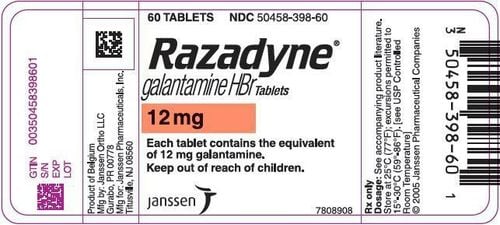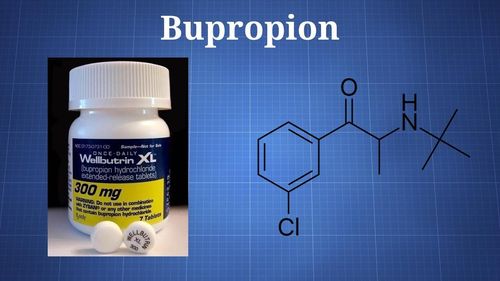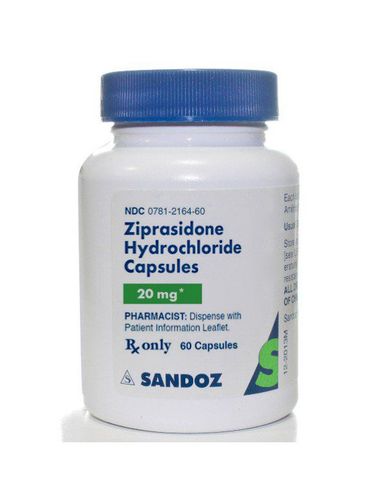This is an automatically translated article.
Delirium occurs when the process of sending and receiving signals in the brain is impaired. Due to a combination of factors that damage the brain and cause distortions in brain activity, this decline occurs.1. What is delirium?
Delirium is a state of mental dysfunction that is suspected, variable, and usually reversible. The disease is characterized by impaired attention, disorientation, inability to think clearly, and fluctuations in alertness.2. Causes of delirium
Delirium can be caused by one or more causes such as medical conditions and drug toxicity. Sometimes, the cause of delirium cannot be determined.
Causes of delirium include:
Drug toxicity Due to alcohol abuse or drug and alcohol withdrawal Due to poor health Due to metabolic imbalance Due to fever and acute infection, especially in children Exposure to toxins by the patient malnourished or dehydrated Due to depression or lack of sleep Due to medical or surgical procedures There are also many other factors that contribute to the risk the higher the risk of developing delirium, such as:
Subjects with dementia, stroke or Parkinson's disease. Due to advanced age: in the elderly, diseases such as dementia, delirium, emotional disorders, schizophrenia and other disorders such as personality disorders, psychogenic disorders often appear in the elderly. People with visual or hearing impairment People with many other diseases

Nguyên nhân mê sảng do lợi dụng các chất có cồn như rượu
3. Symptoms of delirium
People with delirium often have the following symptoms:
3.1. Impaired awareness of surroundings Reduced ability to concentrate Focusing on a single thought, unconcerned with surrounding information Easily distracted Less contact with others, isolating oneself 3.2. Cognitive impairment Memory impairment Inability to orient oneself... Difficulty speaking or remembering words Says nonsense, rambling, off topic Unable to express sentences intelligible Has difficulty reading , write. 3.3. Behavioral changes Hallucinations jittery, excitable Quiet and isolated, especially in the elderly Slow movements Sleep disturbances May scream or groan... 3.4. Emotional disturbance Feelings of anxiety, fear... Depression Feeling irritable and easily angered Sudden excitement Apathy Emotions change rapidly and often unpredictably There is a change in behavior Personality In addition, people with delirium may experience other accompanying symptoms.

Rèn luyện khả năng bình tĩnh, hòa đồng trong giao tiếp để hạn chế rối loạn cảm xúc
4. Methods of treating delirium
For effective treatment, it is necessary to consult medical professionals. Doctors will diagnose delirium based on tests to assess the condition of the disease:
Assess cognitive ability, think through conversation or take tests, screening to assess mental state , cognition, memory... Checking for signs of an underlying health problem or disease, neurological exam, vision, reflexes can determine if you've had a stroke or another neurological condition delirium anesthesia. Blood, urine, and other tests. Brain imaging tests are used when other information does not work. Treatments for delirium include:
Supportive care: Need for airway protection Support for movement No sudden changes in surroundings Incontinence needs to be treated Family members or acquaintances should participate, bond together Use of drugs: The use of certain drugs that can control pain causes delirium Some other drugs help people behave paranoid, or appear delusional sense. These drugs are used when you cannot get a checkup, your appearance threatens the safety of others, or treatment is not effective without medication.
After definitive treatment of delirium, these drugs will be reduced or stopped altogether.
In addition, patients need to have a suitable lifestyle such as:
Have healthy sleep habits Avoid interruptions in sleep Healthy activities Take care of yourself Create a quiet, pleasant environment Exercise ability to calm down and determine direction Communicate with people Gently when communicating Do not argue Every day should set a clock, calendar..to create a habit Reduce complicated complications: Take medicine as directed As determined by your doctor, a healthy, reasonable diet Regular exercise Treatment for underlying problems such as infections, metabolic disorders Delirium can last for hours, weeks or months.. .if the predisposing factors for delirium are addressed, the recovery time is usually shorter. Patients need to immediately go to medical facilities, consult experts for timely treatment.
Please dial HOTLINE for more information or register for an appointment HERE. Download MyVinmec app to make appointments faster and to manage your bookings easily.













